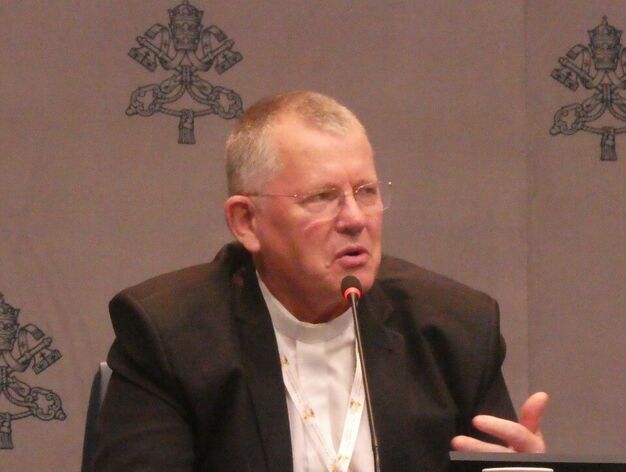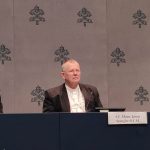
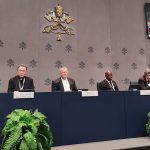
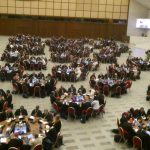
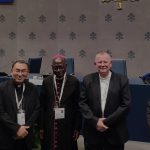
“Authority does not come from sociological power, but from ethical, moral and religious testimony”
“The care that we are called to develop towards the environment has an even greater degree of dignity, this environment, this life, this Planet, is not the result of human labor, it is divine”
It is the work of the Synod, putting as paths dialogue, listening, sensitivity to different realities, seeking “points of convergence in the face of the challenge of transmitting the faith today to new generations.”
“We are so different, but there is something that unites us, and there lies the beauty, greatness and dignity of the school itself”
The possibility of this ordination of married men for a specific community, “this would require parrhesia from all of us, a capacity for openness of heart, it is an issue in which we do have to move forward”
It is the work of the Synod, putting as paths dialogue, listening, sensitivity to different realities, seeking “points of convergence in the face of the challenge of transmitting the faith today to new generations.”
“We are so different, but there is something that unites us, and there lies the beauty, greatness and dignity of the school itself”
The possibility of this ordination of married men for a specific community, “this would require parrhesia from all of us, a capacity for openness of heart, it is an issue in which we do have to move forward”
The possibility of this ordination of married men for a specific community, “this would require parrhesia from all of us, a capacity for openness of heart, it is an issue in which we do have to move forward”
The archbishop of Porto Alegre and president of the National Conference of Bishops of Brazil (CNBB) and the Latin American and Caribbean Episcopal Council (CELAM), was one of the participants in the press conference on October 8. He expressed his surprise at the cardinal appointmentwhich he will receive on December 8 in the Vatican, but at the same time he remembered one of the principles of his life: “never say no to what the Church asks of me.” He also thanked Pope Francis for the trust placed in him.
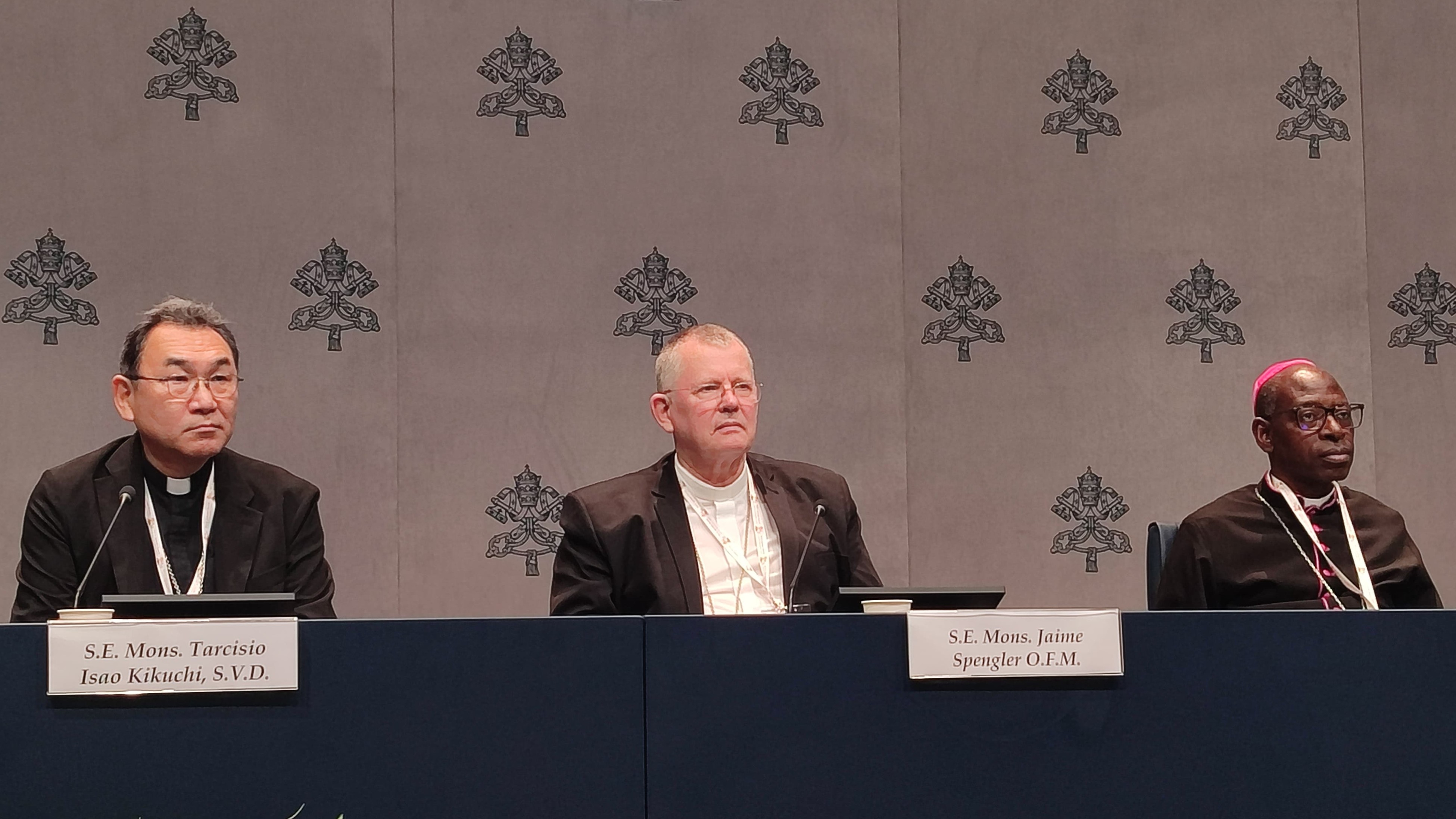
Witnesses more than teachers
When referring to synodality in Latin America and the Caribbean, Spengler highlighted that “today, the question of authority in society and in the world is a decisive issue,” stating that “we are experiencing a moment of crisis for democracies.” and along with it “a crisis of mediation institutions in society, both at an international and global level, and also at a continental level.” In this sense, the Archbishop of Porto Alegre called to remember the words of Paul VI: “Today human beings listen much more attentively to witnesses than to teachers, and if they listen to teachers it is because they are witnesses.” From this perspective, he stressed that “authority does not come from sociological power, but from ethical, moral and religious testimony”.
Free Digital Religion Bulletin
I WANT TO SUBSCRIBE
Inculturation of liturgical rites
Regarding the Amazonian Rite, a possibility under discussion, the president of the CNBB referred to the reality of many communities in the Amazon, where the Eucharistic celebration takes place once a year, or even less. The Amazonian Rite is being studied by the Ecclesial Conference of the Amazon (CEAMA), he highlighted. He said that the Roman Rite “must be inculturated in different realities”, something that requires special sensitivity. Recalling the diversity of peoples, cultures and languages, the future cardinal spoke of the importance of a rite for the region, giving as an example the Eucharist celebrated at the CEAMA Assembly in 2023, in which indigenous people served at the altar in various roles. . He highlighted the dignity, reverence, manner and care with which the indigenous people carried out what was part of the rite, “with a dignity that sometimes we do not feel or witness in our celebrations, no matter how solemn they may be.”
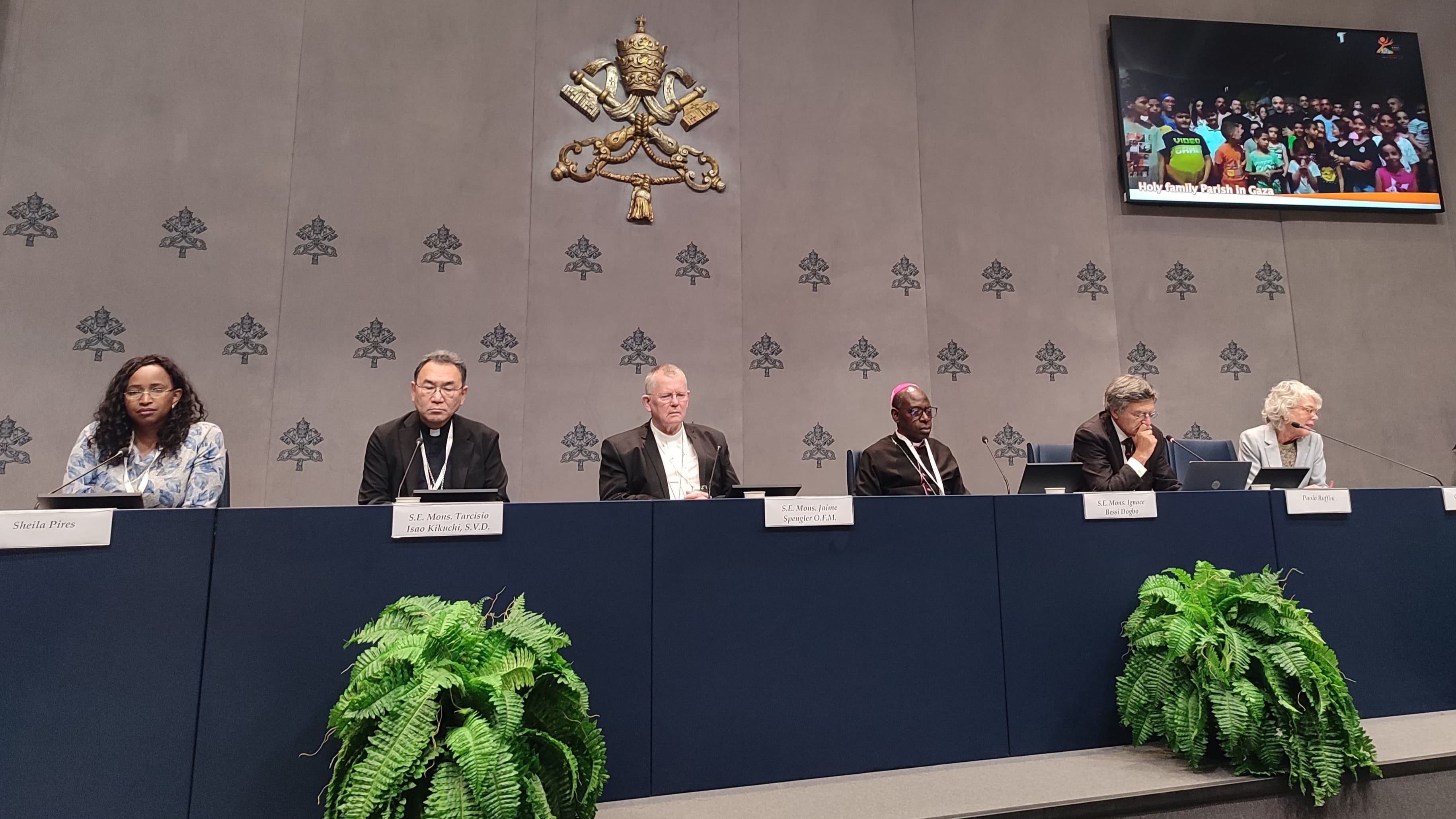
Climatic phenomena in Brazil
The Synodal Assembly is addressing the issue of relationships, and in this perspective, the president of the CNBB, given the climate reality that is experienced in Brazil and in other places on the planet, said that the group in which he participates has touched this aspect, seeing that the Instrumentum laboris speaks of the horizontal and vertical relationship, transcendent, “but perhaps the relationship with the environment, with the common home, has been lackingan aspect that we need to keep in mind in the discussions these days.” He spoke of the dramatic situation that Brazil is experiencing, with fires and droughts in the Amazon, and of his conversation with the archbishop of Manaus, Cardinal Leonardo Steiner, in which he informed him that he has not been able to visit some communities whose only access is the rivers, now dry.
Faced with this, Jaime Spengler emphasized: “the world, nature, is asking for helpand we are called to take care of nature, not because we can perish due to lack of care for the environment, for the waste we produce, for the transformations we are witnessing.” Considering this very important, he stressed that “the care that we are called to develop towards the environment has an even greater degree of dignity, this environment, this life, this Planet, is not the result of human labor, it is divine. And for that reason, all care, all promotion is necessary.”
The president of the CNBB emphasized Pope Francis’ question: “What world do we want to leave for our children, our grandchildren, those who will come after us?” He insisted that “the future is in the hands of God,” but also that the new way of living “depends on our choices, our decisions, our options,” which requires evangelical co-responsibility with effects on society and in the future better in the lives of those who will come after us.
Mission that builds society
Regarding the mission in the Church, the theme of the Second Session of the Synodal Assembly, the president of the CNBB highlighted the outstanding role in the evangelization of Brazil and Latin America played by those who arrived from other regions, stating that “If today we have a vigorous Christian tradition, we owe it to immigrants“, even in the face of the many difficulties they suffered, which they overcame with “determination, courage and above all faith, which gave them the strength to build a society of which today we are participants.” He also highlighted the importance of Initiation into the Christian Life, a topic discussed at the synod.
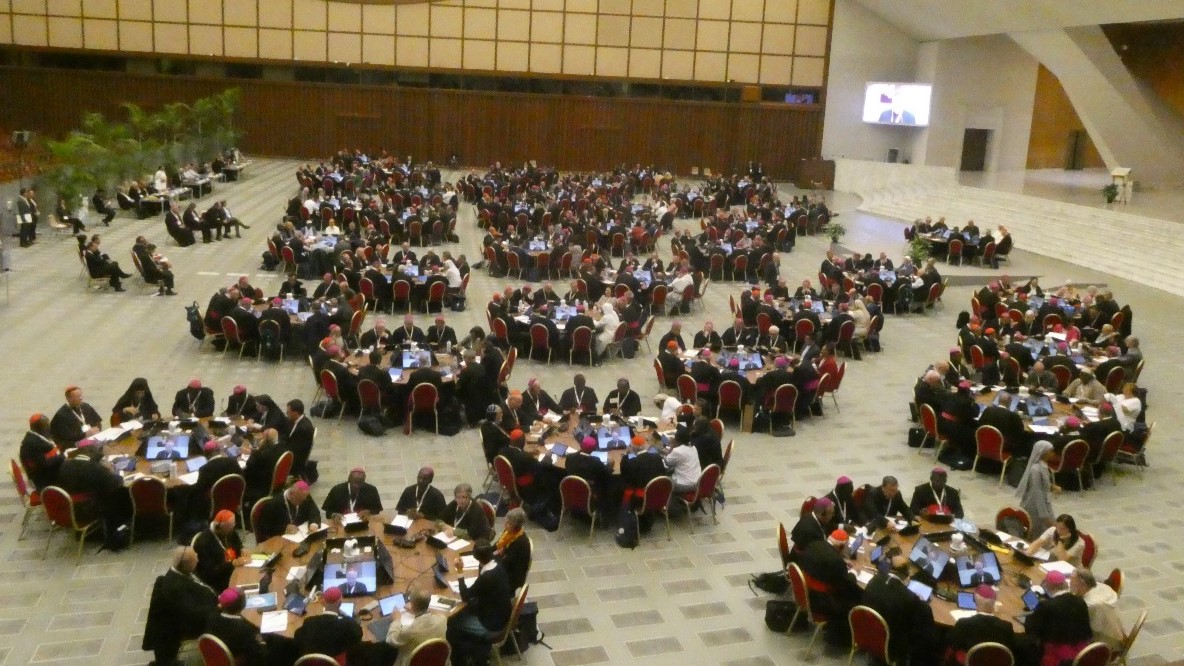
Meeting points for the transmission of faith
Spengler believes that the great challenge of the Church is to reach people with faith. Stating that the path is not clear, he said that this is the work of the Synod, putting as paths dialogue, listening, sensitivity to different realities, seeking “points of convergence in the challenge of transmitting the faith today to new generations”, something that requires openness of heart and intellectual and spiritual capacity of the participants in the assembly. Speaking of the Brazilian Episcopal Conference, with more than 450 bishops and a large general assembly, which it came to define almost as a Synod, it sees these meetings as a Pentecost, in which people from different cultures and languages manage to reach points of convergence to respond to the current political, social and ecclesial reality.
Wealth in the diversity of the College of Cardinals
The Archbishop of Porto Alegre referred to the tragedy experienced in Rio Grande do Sul in May, with cities completely devastated, which requires building in another way. He highlighted the wave of solidarity never seen in Brazil, which must go down in history, without forgetting that the worst attitudes also appeared. He spoke about the catholicity of the Church, which has to do with “God’s own generosity and magnanimity, capable of dialogue with all differences, cultures, realities and peoples.” He sees in the diversity of the College of Cardinals an “expression of this characteristic way of being Catholic,” highlighting Pope Francis’ concern for different realities, manifested in the universality of this college, “We are so different, but there is something that unites us, and there lies the beauty, greatness and dignity of the school itself.”.
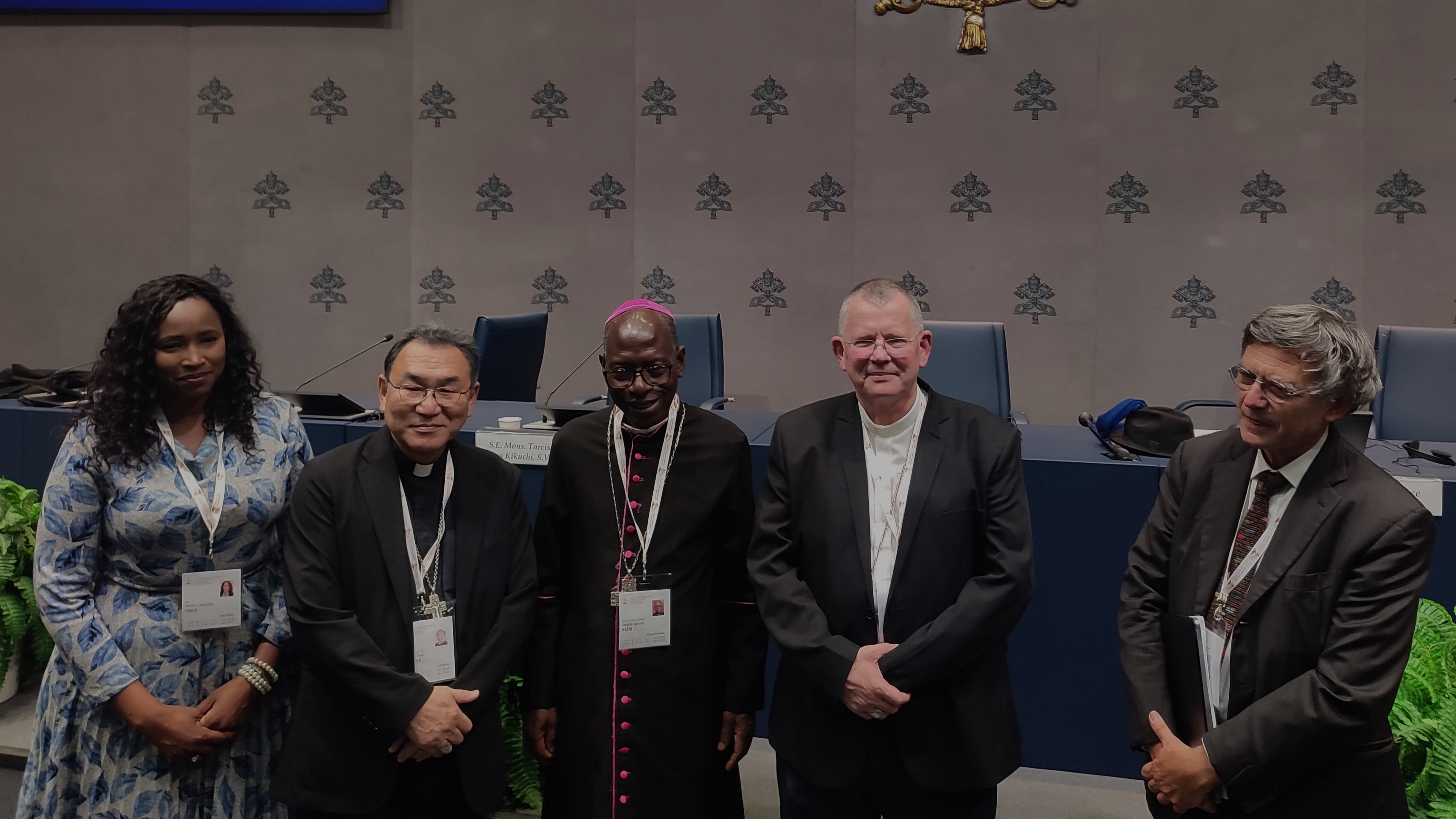
Parrhesia before the ordination of married men
Given the possibility of ordaining married men and for CELAM to take up the issue, its president said that, although it is a delicate matter, “This is a question of ecclesiastical discipline, not a theological question”. He recounted the experience of a bishop from the Amazon who, after creating a prelature, only had one priest for a local Church of enormous size. Given this, he said that “it is a reality that must be analyzed,” referring to the possibility of married men exercising the ordained ministry in the degree of priests, something that he said he did not know if it would be the best solution.
The president of CELAM requested a parrhesia to address this matter, affirming the possibility of this ordination of married men for a specific community. “This would require parrhesia from all of us, the capacity to open our hearts, it is an issue in which we do have to move forward.”, although he acknowledged that the path is not clear. Even so, “we can and must address this question with courage”, taking into account the theological and biblical aspects of the Tradition of the Church, but also attentive to the signs of the times, something that the apostles did in search of answers to different needs.
